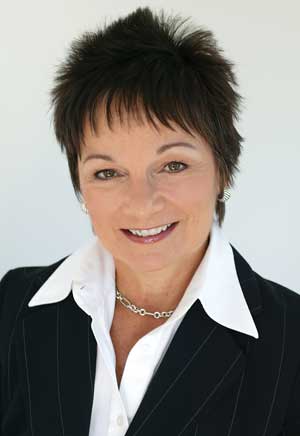New technology that has already made its way into one courtroom in the United States could revolutionize trials but may also raise some ethical questions, according to one U.S. litigator.

Joan Lukey, a partner with WilmerHale in Boston, told the Advocates’ Society 2007 Spring Symposium in Toronto recently that technology, such as new document presenters, digital video evidence, and 3D graphics, has changed the ground rules for evidence presentation and can enhance what happens in court. However, she says the newest example of technology that could revolutionize the courtroom is the use of holographic evidence.
The technology has been used in one trial so far in the United States, she says, in a case that questioned a surgeon’s actions during a medical procedure. A holographic model of the operating room was created as evidence, which resembled the actual scene from the day in question, complete with the appearance of virtual figures in the room.
Lukey calls the holographic technology exciting but terrifying, asking, “How do you know that you are re-creating exactly what happened?” The technology could also raise some ethical concerns.
“I do think it’s the next wave, but it should be more limited than in that [malpractice] case,” she says, adding that it perhaps shouldn’t be used to re-create people’s actions.
Until 10 or 15 years ago, oratorical skills were synonymous with advocacy, says Lukey. While technology will not replace the orator in the courtroom, she notes that it does create the possibility for everyone to “raise the level a little bit.”
More generally, the admission of electronic evidence at trial is also an ongoing issue, says J. Bruce Carr-Harris, a partner with Borden Ladner Gervais LLP, as there are questions about proving its reliability in court and some judges remain nervous about electronic data. Counsel are required to prove the authenticity as well as a chain of custody for electronic records, including material downloaded from the internet, instant messages, electronic phone records, and computer printouts, he says.
In addition to the issues of technology, some improvements may also be needed when it comes to the rules of evidence and the prolific use of expert witnesses during trials, a panel of judges told the conference.
“I think we all recognize that there could be some improvements and we want to be part of that process,” Ontario Superior Court Justice Lynne Leitch told the conference.
Panel moderator Sandra Forbes of Davies Ward Phillips & Vineberg LLP said with fewer cases going to trial, advocates may have less opportunity to hone their skills.
Superior Court Justice Todd Ducharme told the symposium that as a result some counsel either don’t know what the rules of evidence are or “they don’t care.” This is also the fault of judges, he said, but ultimately, knowledge of the rules will shorten trials.
He added that he routinely sees counsel eliciting hearsay evidence without any opposition from opposing counsel.
“If there’s any question about the admissibility of evidence, it’s essential that you object, and you object at the time of its admission,” he said.
With respect to expert witnesses, Justice T. David Little of the Ontario Superior Court told the conference that the courts are in over their head with experts costing too much money. He emphasized that in Ontario, counsel have to seek leave from the trial judge if they wish to call more than three expert witnesses.
The problem with bringing in experts, said Little, is that they’re there to assist the court with issues that it may not understand.
“Tell the expert before they get on the stand, ‘Don’t be an advocate,’ ” he said.

 Joan Lukey, a partner with WilmerHale in Boston, told the Advocates’ Society 2007 Spring Symposium in Toronto recently that technology, such as new document presenters, digital video evidence, and 3D graphics, has changed the ground rules for evidence presentation and can enhance what happens in court. However, she says the newest example of technology that could revolutionize the courtroom is the use of holographic evidence.
Joan Lukey, a partner with WilmerHale in Boston, told the Advocates’ Society 2007 Spring Symposium in Toronto recently that technology, such as new document presenters, digital video evidence, and 3D graphics, has changed the ground rules for evidence presentation and can enhance what happens in court. However, she says the newest example of technology that could revolutionize the courtroom is the use of holographic evidence.